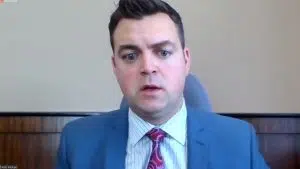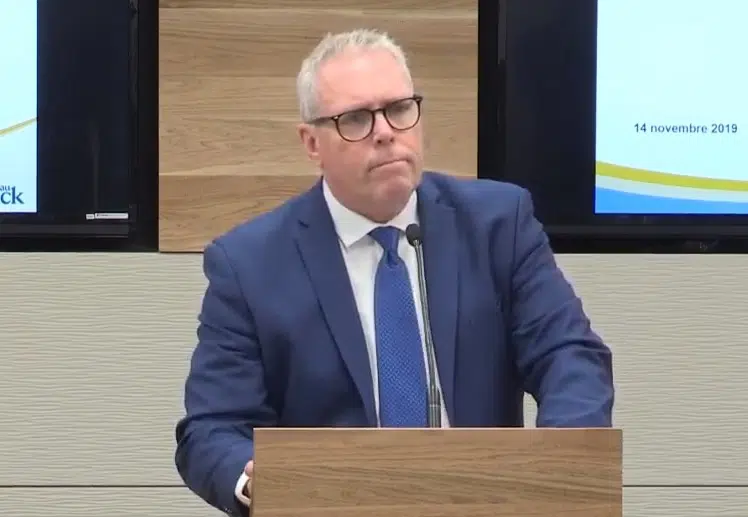“Unprecedented” revenue increases are leading to a significant projected surplus in New Brunswick, according to the province.
Finance Minister Ernie Steeves unveiled the third-quarter results for the 2021-22 fiscal year on Tuesday morning.
The Higgs government is now projecting a massive surplus of $487.8 million for the current fiscal year.
That is compared to the $244-million deficit it had been forecasting when the budget was first released.
Steeves said revenue for the year is now anticipated to be $832 million higher than originally budgeted.
“The majority of our surplus is the result of stronger income tax and HST revenue, reflecting stronger than anticipated 2020 results and a strengthened economy,” said Steeves.
HST revenue is up by $293.8 million, personal income tax revenue has increased by $193 million, and corporate income tax revenue is up $160.6 million. Unconditional grants are also anticipated to be $131.9 million higher than expected.
Steeves said when the budget was first released last March, the effect of the slowdown of the economy in 2020 as well as federal supports were not fully understood, and the province did not yet have tax data.
“We began receiving preliminary tax assessment data for 2020 in the late spring which, as it matured, showed stronger than anticipated results,” he said.
“As the year progressed, we built in official federal estimates, which largely come in the second and third quarter. This is what has led to the significant spike in revenue.”
Total expenses are projected to be more than $99 million higher than budgeted, which includes recent wage settlements with a number of unions.

Rob McKee, the Liberal finance critic, speaks during a virtual media availability on Feb. 15, 2022. (Image: Zoom video capture)
Steeves said the province’s net debt is projected to drop to $13 billion by the end of the fiscal year, an improvement of $470 million year over year.
Despite the projected surplus of nearly half a billion dollars, Steeves cautioned that more than half of the anticipated revenue increase is non-recurring in nature.
“We can’t expect this in future years,” he said. “In the next few years, we will see the withdrawal of federal supports and our program spending will continue to be influenced by COVID-19.”
However, Steeves said one item the Higgs government is “strongly considering” is reducing the so-called “double tax” on apartments, cottages, and second homes.
The plan was initially announced in the 2020-21 provincial budget but was halted weeks later amid financial uncertainty due to the pandemic.
“I know I’ve said that before, but cross my heart folks, this is gonna happen, hopefully, this year,” said Steeves.
The Liberal finance critic said it is hard to trust the numbers that were presented in Tuesday’s fiscal update.
Rob McKee said the forecasts are “way off” from what the government was initially projecting last year.
“We said it last year at budget time that we felt that the revenues were low-balled and that revenues would be much higher than what they’re estimating,” said McKee
McKee said it is unacceptable for a province of this size to have such a huge surplus, adding there are many issues that have not been adequately met that could be addressed.
“We’ve been calling all along throughout the pandemic for relief for small- and medium-sized businesses, to the tourism, arts and culture industries. We have needs in healthcare, nurse and doctor recruitment, same thing in long-term care.”




